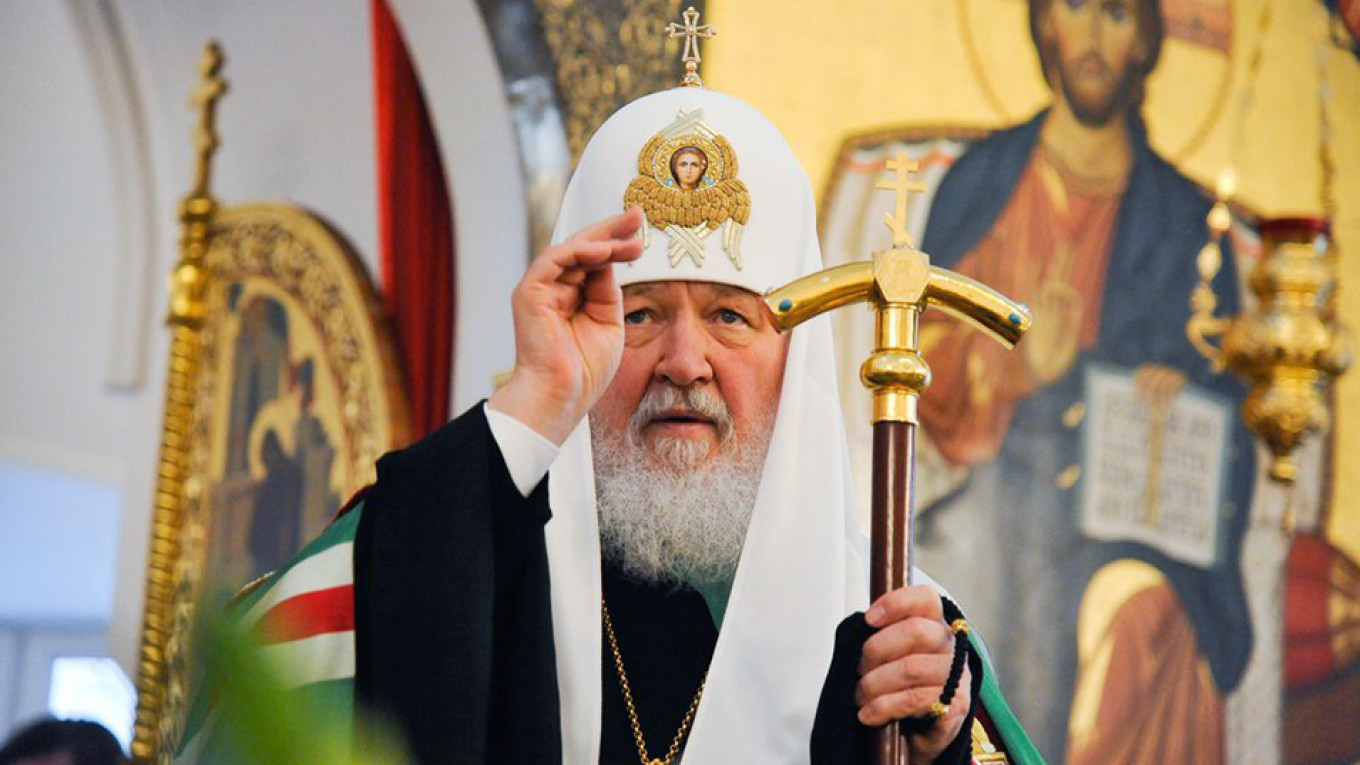
Russian Orthodox Patriarch Kirill has accused lawmakers who seek to re-criminalize domestic abuse of “borrowing” the draft law, as well as the concept of domestic violence, from abroad.
Russia scrapped criminal punishments for first-time domestic abuse offenses in 2017. A series of high-profile murder and domestic violence cases has pushed lawmakers to begin work toward overturning that decision last fall, but the new law’s progress has faced several delays.
Patriarch Kirill, in an interview marking Orthodox Christmas, linked the proposed domestic violence bill to “a desire to bring our Russian laws in line with what exists in other countries.”
“The adoption of these laws in foreign countries seems to create a certain dependence on these foreign innovations in the minds of our lawmakers,” he told the state news channel Rossia 24.
“Any intrusion into family matters from outside carries significant negative consequences,” the influential Russian Orthodox Church leader said in the interview published Tuesday.
Using language that had partly delayed the new domestic violence bill, he noted that “we must protect the family first.”
Activists who co-authored the re-criminalization bill criticized its published text last month after lawmakers shifted its stated purpose from “saving the victim” to “protecting the family.”
Other experts said the published text contained a “very vague” definition of domestic violence and scrapped needed details on provisions for restraining orders.
Patriarch Kirill’s opposition to re-criminalizing domestic violence is shared by vocal conservative groups, who have staged several rallies and signed open letters urging President Vladimir Putin to block the bill since the fall.
Putin himself has said he has “mixed feelings” about reinstating criminal punishments for first-time domestic violence offenses.
The bill’s authors now expect a newly revised version to be submitted to Russia’s lower house of parliament, the State Duma, in late January.

Leave a Reply